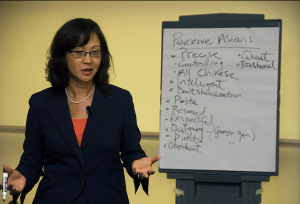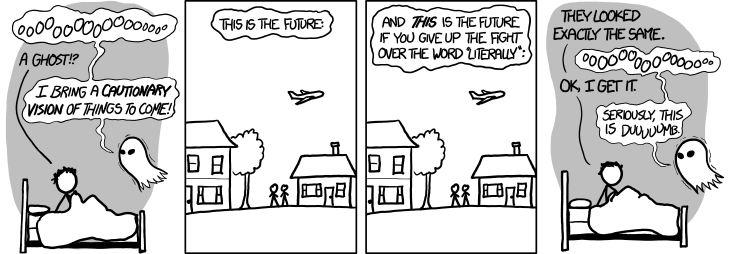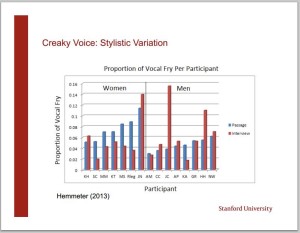
At the beginning of my freshman year French class in high school, my teacher passed out a poem called “English is Tough Stuff.” She had each student read several lines aloud. The point was to show us how difficult our own language was, and that we should think twice before complaining about how hard learning French was. Here is an excerpt:
Billet does not rhyme with ballet,
Bouquet, wallet, mallet, chalet.
Blood and flood are not like food,
Nor is mould like should and would.
Viscous, viscount, load and broad,
Toward, to forward, to reward.
And your pronunciation’s OK
When you correctly say croquet,
Rounded, wounded, grieve and sieve,
Friend and fiend, alive and live.
The difficulty of English spelling, while perhaps not at the forefront of one’s mind in a French class, is certainly a well-known concern among all educated English speakers. Some people are talented at English spelling, but our orthography is the bane of many elementary school students in the US and the UK. Why is English spelling so inconsistent and hard to learn? Is this an intellectual exercise made up by malicious English teachers?
The answer lies in the history of our language. English’s history is a winding, complicated one, particularly in its writing. If you want to read a more in-depth history of spelling, you can read this article by David Crystal (who has written a whole book on the topic if you’re really curious). While some languages have a fairly linear history (for example Latin → Italian), the history of English is a bit more complicated. English is technically a West Germanic language, because Old English came to England by way of Anglo-Saxon invaders. However, English has had a huge amount of influence from other languages because of two major invasions in the Middle Ages: first an invasion from the Scandinavian countries whose people spoke North Germanic languages and then from the Norman conquest, which brought in a huge amount of French influence.
The Viking invasion brought a large influx of new words in the 8th and 9th centuries. Many English words beginning with “th” and “sk” can be attributed to this period. The Vikings assimilated into English culture and became a part of the island, and brought now-common English names like Eric and Howard, as well as last names ending in -son, like Anderson.
The Normans, however, did not assimilate into English culture. They took over the ruling positions and almost everyone in the higher classes spoke French rather than English. This is one of the reasons that French words are associated with class in English. An example: in other languages, many of the words for the animal are the same as the words for the meat. In German, pork is schweinefleisch, or “pig flesh.” However, in English we often do not use the same word for the animal and the meat. Pig, pork. Deer, venison. Sheep, mutton. Cow, beef. The reason for this is that the English people who raised the meat were peasants, and as such they continued to use Anglo-Saxon terms for the animals, because they did not speak French. But the French speakers could afford to eat the meat, and so used their own animal terms for the food — in French pig is porc, cow is boeuf, sheep is mouton.
So what does this have to do with spelling? Different languages have different sounds, and different languages sometimes use different spellings for the same sounds. For example, in (many) words of Modern English, the sound “oo” as in “food” is spelled with “oo.” However, the same sound is spelled “ou” in Modern French, or “u” in Modern Spanish. You can imagine, then, that the melding of languages might make things complicated. There is, however, some systematicity in English spelling within the language of origin. In order to be good at English spelling, you have to understand patterns in the language and be able to hold in mind several competing patterns at once. So the sound “s” in “sad” can be spelled like just an “s” or it can be a “c” as in “city,” but there aren’t any other options for that particular sound. A lot of these patterns are based on the language of origin. For example, the word “crouton” comes from French, so it is spelled like the French way, but the same sound in “food” comes from Old English. This is the reason that kids in spelling bees often ask for a “language of origin” — it gives them a clue to how some of words are spelled. (Spelling bees are a purely English phenomenon, by the way, though other languages do have some interesting linguistic competitions of their own)
In addition, there are sounds that used to exist in English that no longer do. For example, the sound “gh” in words like “night” and “thought” used to be pronounced like the end of Bach or loch, making the sound of the word “night” closer to its German cousin nacht. Vowel sounds have changed dramatically as well. In much of Shakespeare’s work, the words at the end of the lines no longer rhyme; but they did at one point. For example, if one line ended with “love” and the next ended with “Jove,” they were pronounced the same way. Today’s Shakespeare performances sound very different than they did long ago.
Of course, for linguists all of this confusion makes life more exciting, though we certainly do have sympathy for the schoolchildren who struggle. There have been many attempts at spelling reform for centuries. Despite these efforts, however, I think that English spelling is not going to simplify any time soon, and indeed, with the modern status of English as a global language, I think we’re only going to see more of an influence from other languages.





